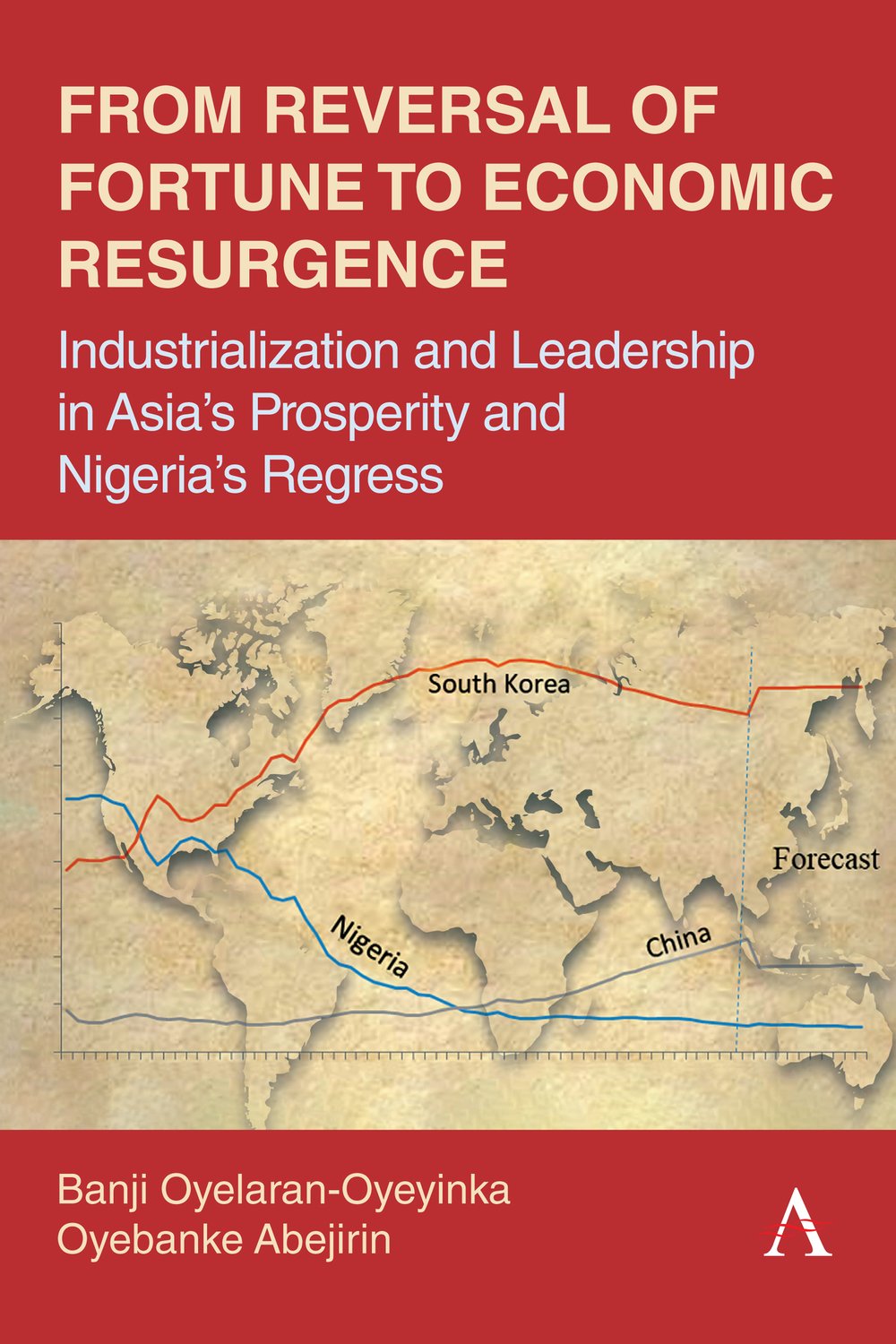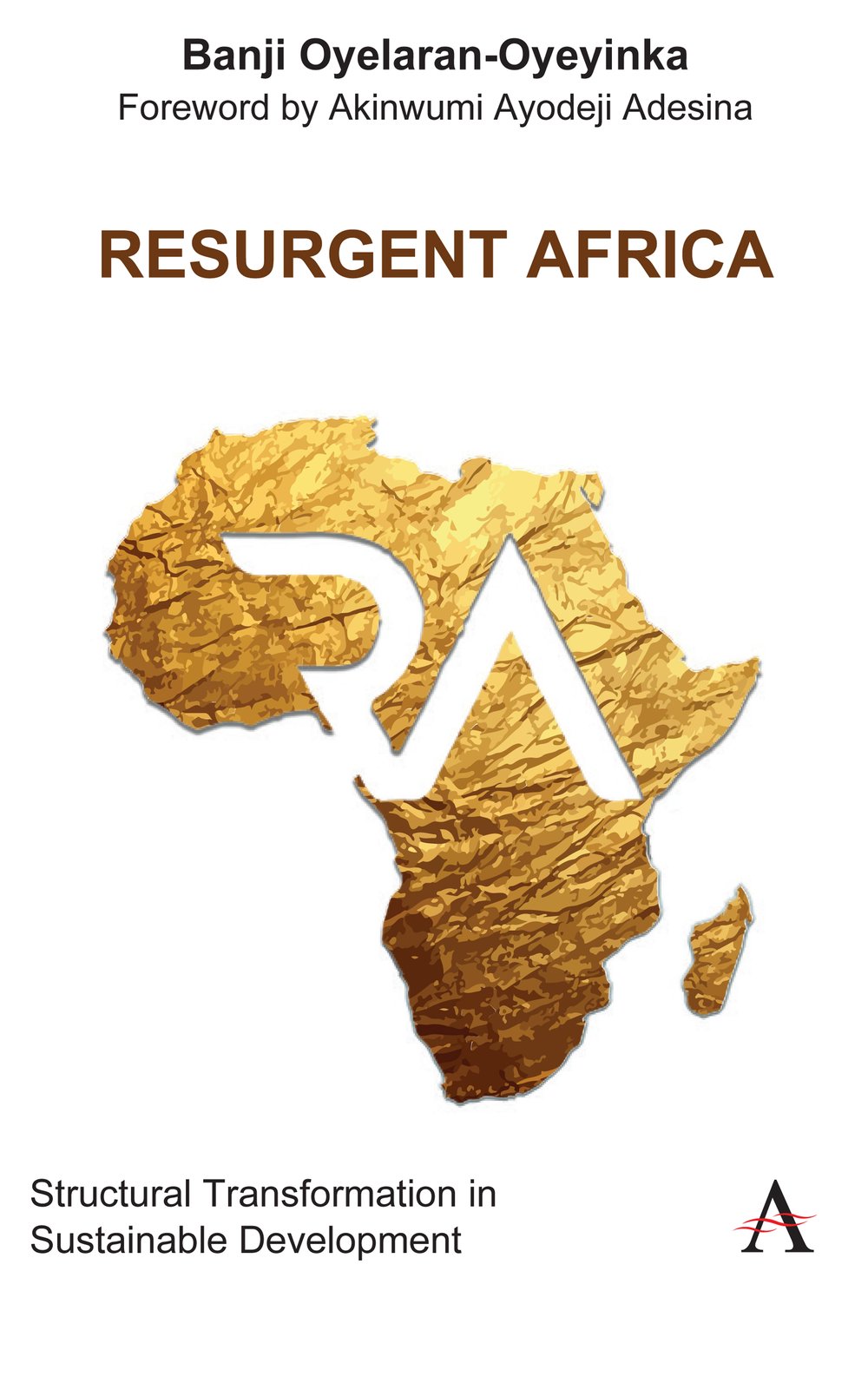From Reversal of Fortune to Economic Resurgence
Industrialization and Leadership in Asia’s Prosperity and Nigeria’s Regress

Examines the divergent economic growth between Nigeria and Asia, particularly focusing on factors such as state and institutional capabilities that have led to Asia’s advancement in industrial and technological knowledge compared with Africa, utilising both qualitative and quantitative methods to analyse these differences in economic progress.
This book examines Nigeria, Africa’s largest economy and most populous country, and Asia in comparative development and sectoral perspectives. We traced the divergent growth in wealth between the two regions. It takes a novel approach of matching key growth sectors across five selected Asian countries and Nigeria in a cross-regional context. We found that state and institutional capabilities underlying the generation and diffusion of industrial and technological knowledge in Asia distinguished it from Africa. We employ quantitative and qualitative methods, including case studies and statistical/econometric methods, to analyse factors that separate the sample countries that made rapid economic progress in 'catching up' and those that tend to be stagnating and 'falling behind'.
Progress made by Asian countries over the last five decades was due in large part to their pursuit of industrialisation, technological acquisition underpinned by leadership, good governance, and policies in the right institutional contexts. The four Asian countries compared with Nigeria are Indonesia, Malaysia, South Korea, Vietnam, and Bangladesh. There was not one grand development formula; however, the strategy broadly consisted of industrial (vertical) diversification as well as (horizontal) diversification in agriculture. Building industrial capabilities that enable export competitiveness was critical. Again, while leadership is not usually included in factors of growth, the book devotes a chapter to Leadership and Industrialisation and another to State Capacity Industrialisation and Economic Growth.
African countries on the contrary took the low road in exporting minerals and raw agricultural commodities with little value addition; in the process, Africa experienced a reversal of fortune. The African condition is manifestly a Reversal of Fortune because in the 1950s, they were ahead of, or equal to, Asia in per capita income as well as in other development metrics.
We carried out empirical measurement of Reversal of Fortune manifested in economic, social, technological, and industrial conditions by analyzing the disparities in development metrics, particularly the levels and rates of growth of national incomes, industrialization rates, and Human Development Index (HDI). The differences are stark.

Professor Banji Oyelaran-Oyeyinka is a renowned global thought leader and the first Nigerian professor in the field of development economics and industrial policy. He is the Senior Special Adviser on Industrialisation to the President of the African Development Bank (AfDB) and was recently awarded the National Productivity Order of Merit Award (2021) by the Federal Republic of Nigeria.
Dr. Banke Abejirin is a development economist who combines over 15 years of experience in international development, urban planning, research, and strategy consulting. She is currently an Economic Affairs Officer in the Macroeconomic and Governance Division at the United Nations Economic Commission for Africa.

